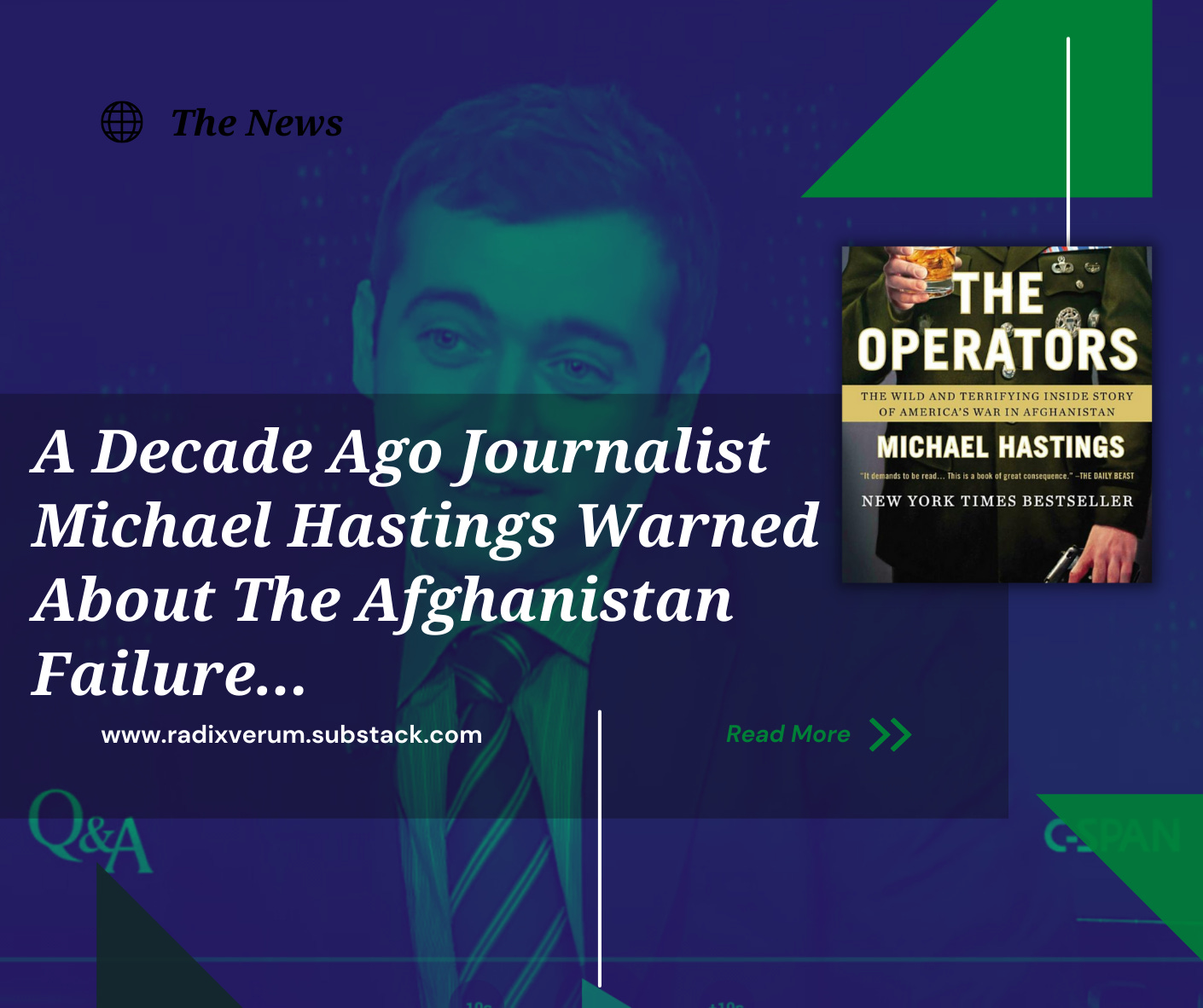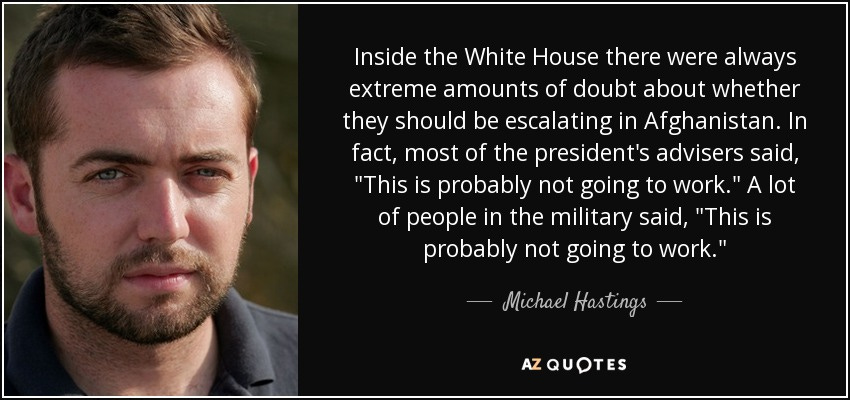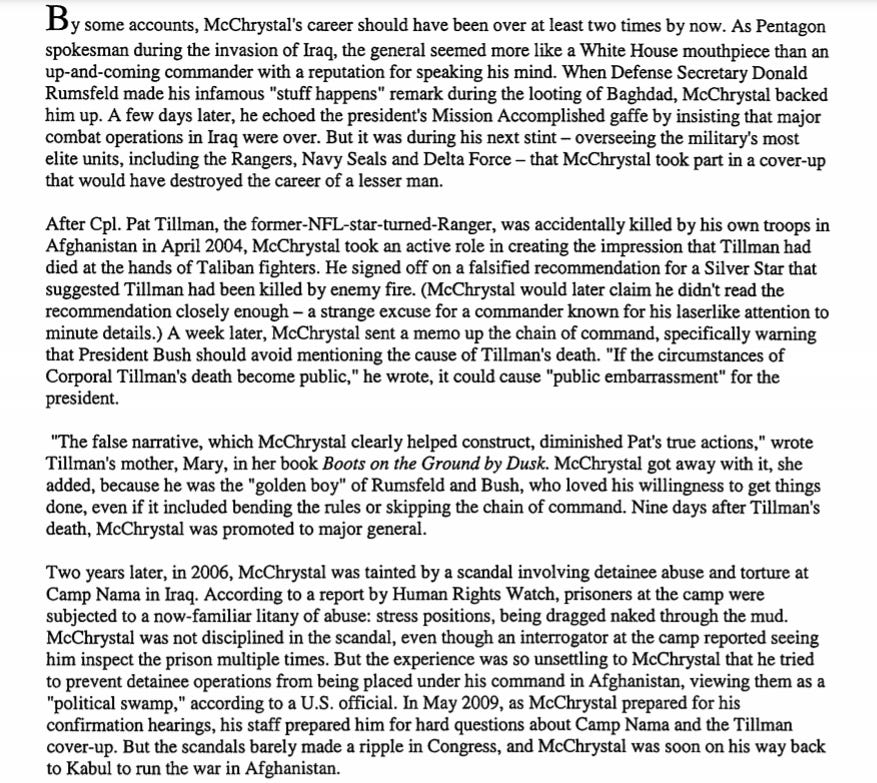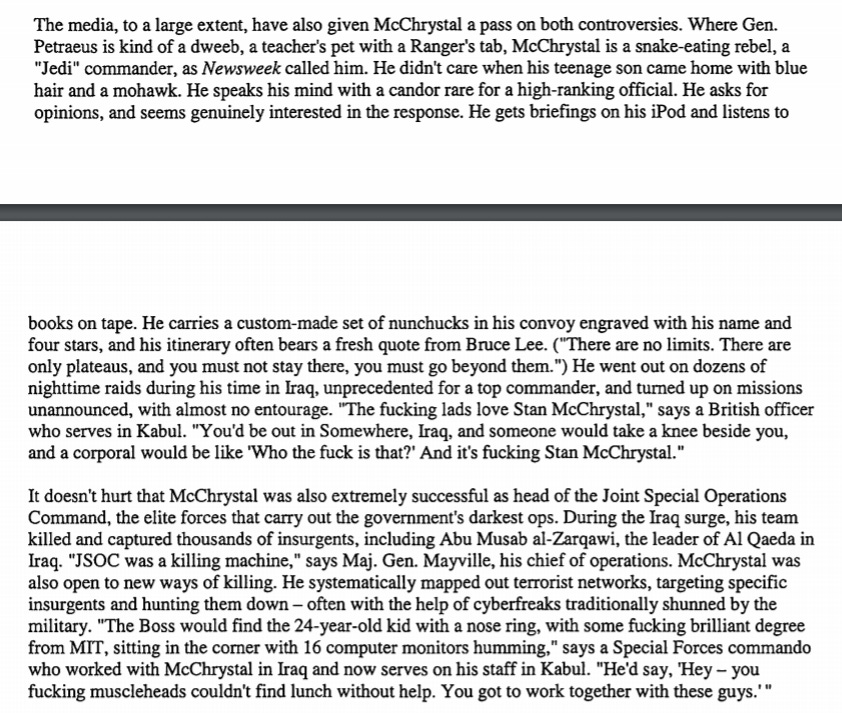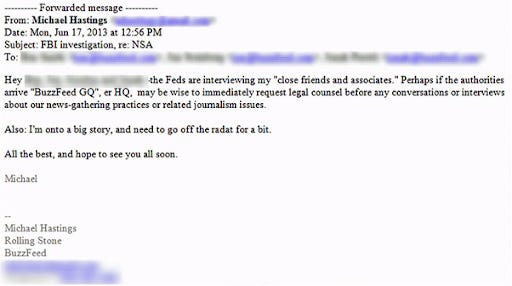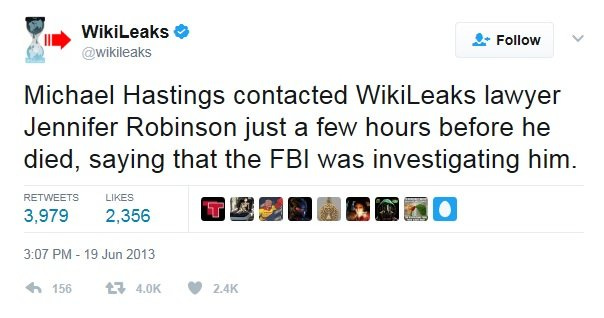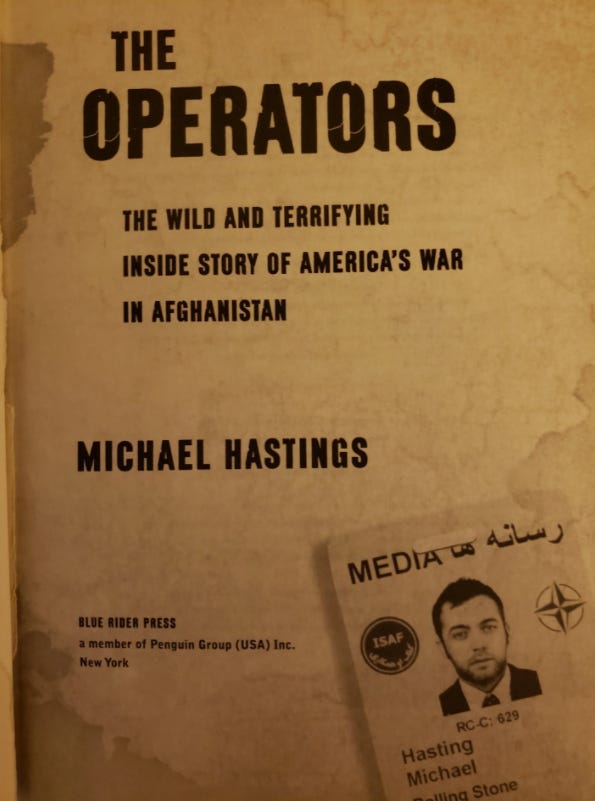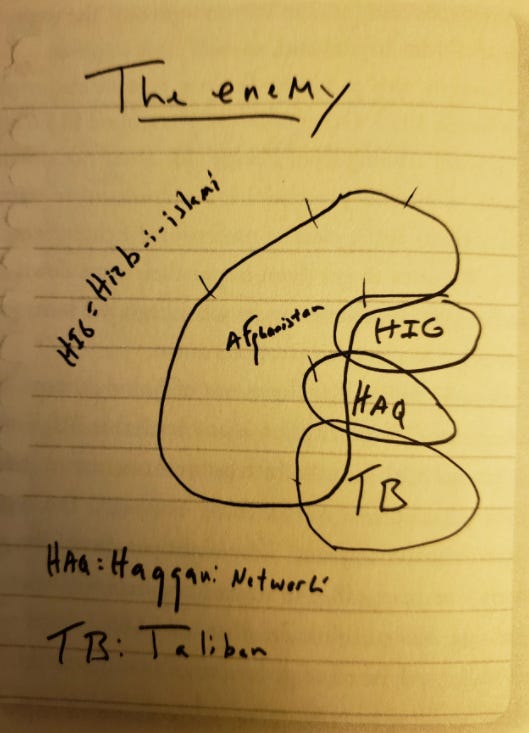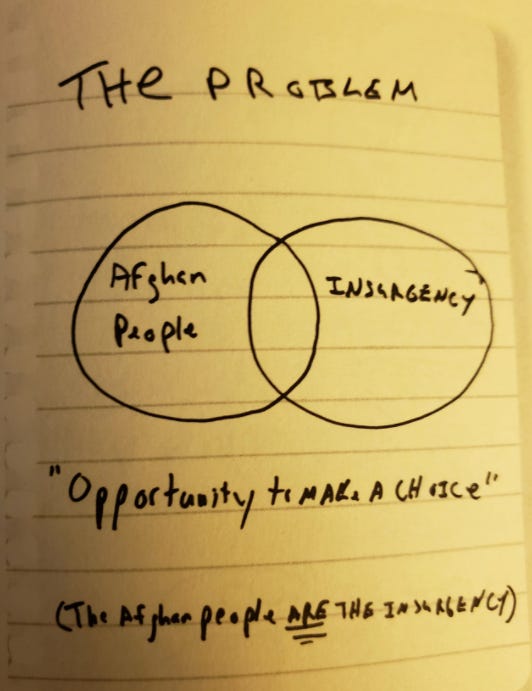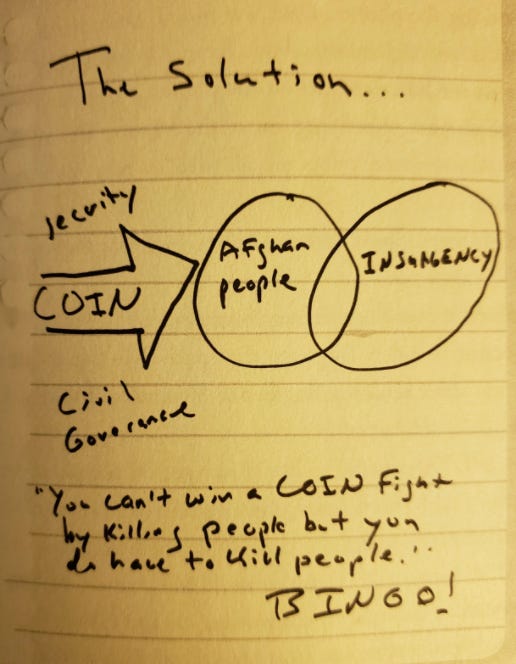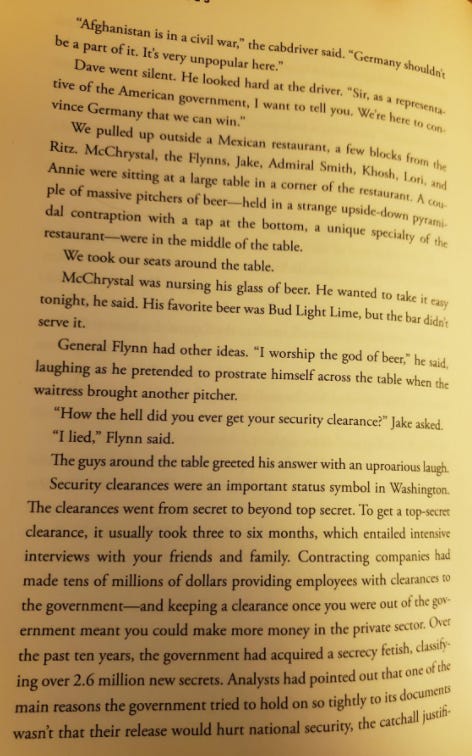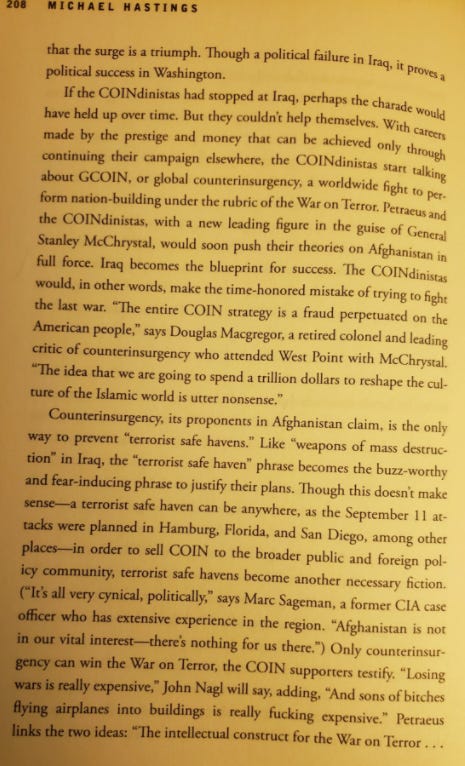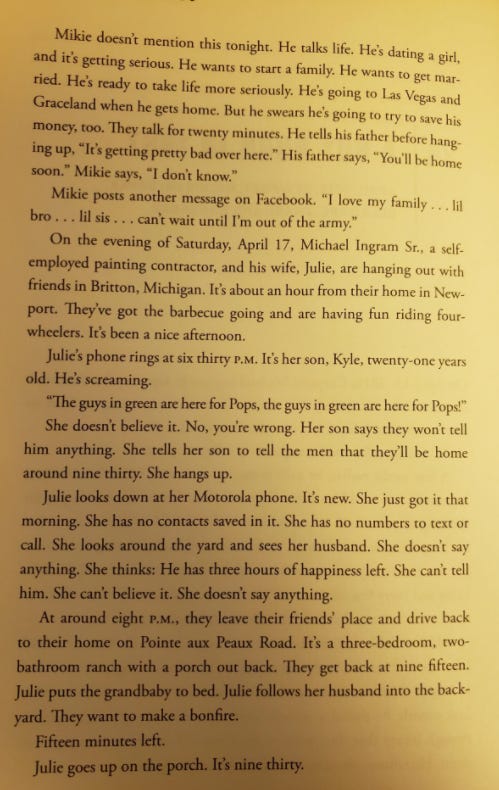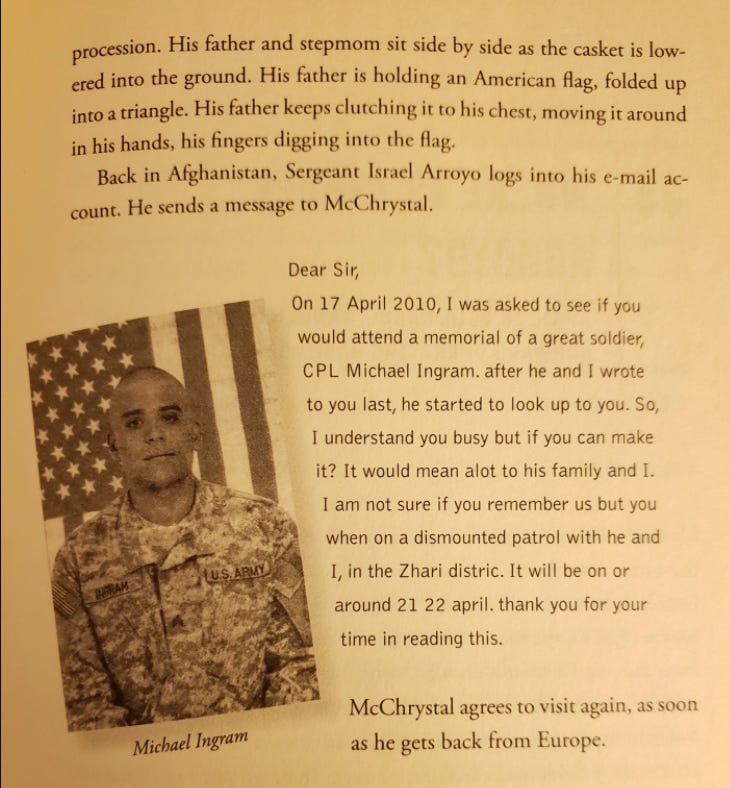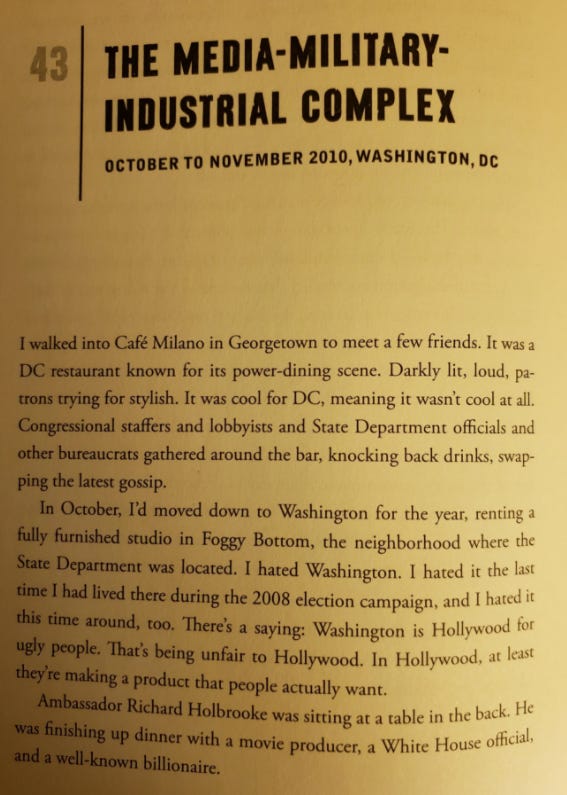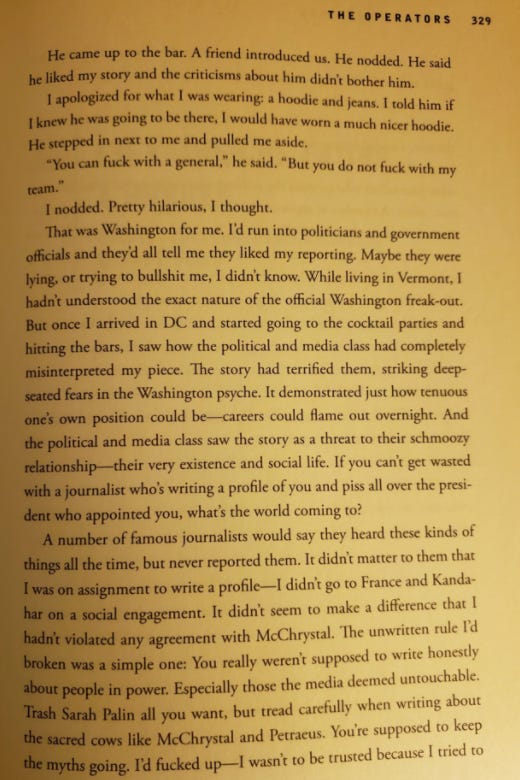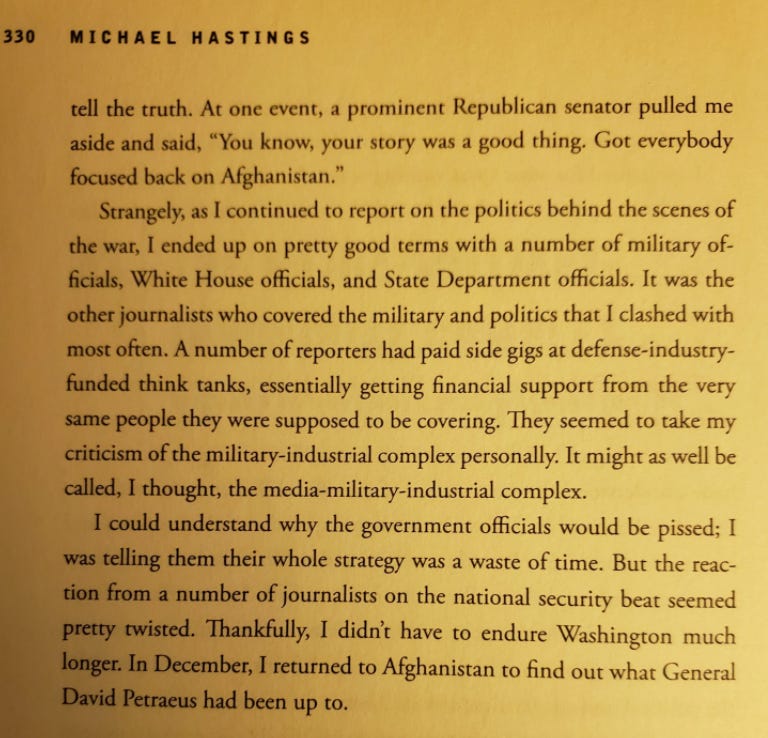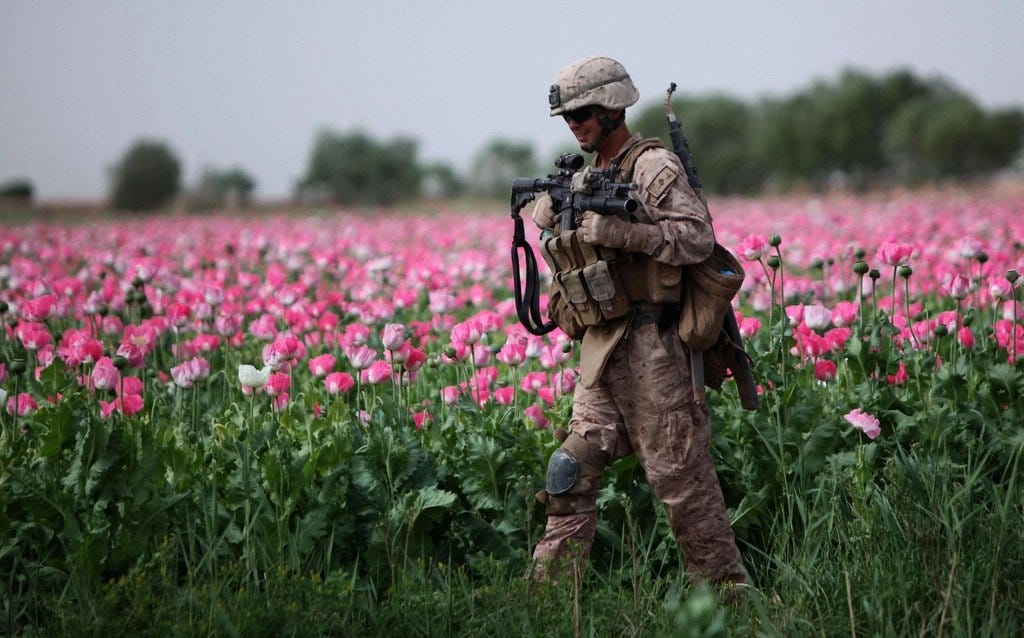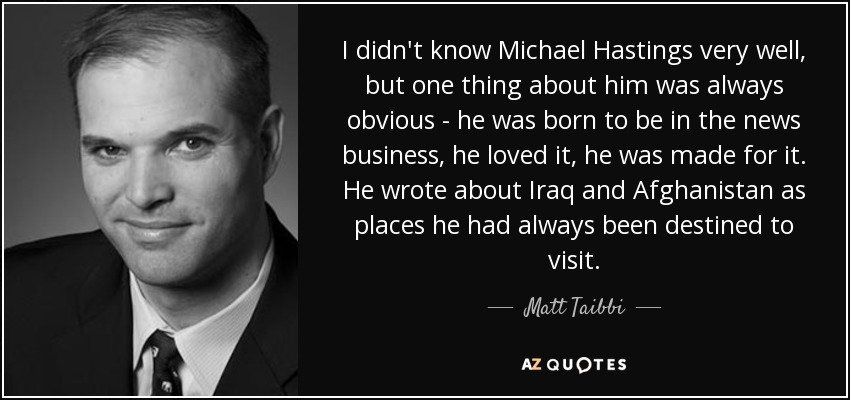A Decade Ago Journalist Michael Hastings Warned About the Afghanistan Failure
Michael's voice of reason is especially missing now...
August 17, 2021 – In January of 2012, on the heels of the publication of his scandalous article for Rolling Stone Magazine, Michael Hastings published an explosive book entitled “The Operators: The Wild and Terrifying Inside Story of America’s War in Afghanistan.” That controversial article was called “The Runaway General” and it featured General Stanley McChrystal, mincing no words about how McChrystal felt about Obama. It also exposed the general’s inner circle and their questionable conduct in a war zone: operating in brash fashion, steamrolling over civilian leadership and, in public and in uniform, getting drunk abroad. Hastings had made an unforgivable mistake, one that ultimately led to his untimely death in his early 30s. That mistake was betraying the unspoken agreement between the brass and the Beltway press, access in exchange for secrecy and fluff pieces.
To understand just how he had betrayed the pact between the press and the military, one need only look at a few excerpts from the Rolling Stone profile on General Stanley McChrystal:
Hastings pulled no punches here, in his measured and accurate critique of McChrystal and his career.
Michael had also exposed the media and how they had given these guys a pass, and even helped create the mythos and mystique surrounding people like McChrystal and Petraeus.
Hastings also critiqued the official Pentagon orthodoxy of “COIN,” aka “Counter Insurgency” as a viable strategy for fighting and winning the war in Afghanistan.
Finally, Michael had correctly concluded in his Rolling Stone profile that winning the war in Afghanistan wasn’t really possible.
Hasting’s Car Crash
Michael Hastings died in 2013 in a most suspicious car crash that led to multiple theories about “hacking” of the computers in cars. The engine was flung over 100 yards from the vehicle and the car is seen on video, out of the blue making a strange sharp acceleration into a tree. It exploded upon impact.
Site of Hastings Crash
Hastings had been extremely disturbed and concerned in the days and hours before his death. He had sent out a panicked email to colleagues and friends warning that he was being investigated by the FBI. The FBI would deny that allegation but subsequent FOIA disclosures showed they were lying and indeed did have a file on him.
In the email he stated he was going “off the radar” for a bit. The subject line of the email was “FBI Investigations, re: NSA.”
Matthew MacEgan wrote about the crash in August of 2013:
The widow of Michael Hastings has confirmed that the investigative journalist was working on a story on CIA Director John Brennan when he was killed in a fiery car crash in June.
In an interview with CNN’s Piers Morgan on August 5, Elise Jordan said that the story on Brennan will appear in an upcoming issue of Rolling Stone. The story apparently relates to Brennan’s role in targeting journalists who were working on government secrets.
In its report on Hasting’s investigations, San Diego 6 News cited an email obtained by WikiLeaks, which alleges that ‘Brennan is behind the witch-hunts of investigative journalists’ who reveal government secrets. It was an internal communication within Stratfor, a global intelligence company with connections to the US state, with a subject line stating that the message was for internal use only and should not be forwarded.
The email went on: ‘There is a specific tasker from the [White House] to go after anyone printing materials negative to the Obama agenda (oh my). Even the FBI is shocked. The Wonder Boys must be in meltdown mode.’
Hastings died in the early hours of the morning on June 19, when his Mercedes exploded after apparently crashing into a palm tree in Hollywood, California. The vehicle burst into flames and the engine was launched 100 feet down the street. One witness compared the sound coming from the blast to a bomb explosion. The impact shook nearby houses.
While initial eyewitness testimony indicated that Hastings had been speeding, new evidence is surfacing that questions such statements. According to the same San Diego 6 News report, a surveillance video taken from a nearby restaurant has been studied and shows that Hastings may have been traveling as slowly as 35 mph when the collision took place.
According to San Diego 6 News: ‘That revelation is important because Jose, an employee of ALSCO, a nearby business, and a witness to the accident, told KTLA/Loud Labs (Scott Lane) the car was traveling at a high rate of speed and he saw sparks coming from the car and saw it explode BEFORE hitting the tree.’
Hastings, who was 33-years-old when he died, had received threats from government officials in response to his work. In one of his books, he revealed that a staffer of General Stanley McChrystal, whose career was ended in part by an exposé written by Hastings, had told him, ‘We’ll hunt you down and kill you if we don’t like what you write.’
In response to recent attention to Hastings’ death, a CIA spokesperson told reporters that ‘any suggestion that Director Brennan has ever attempted to infringe on constitutionally-protected press freedoms is offensive and baseless.’
However, the connection between the death of Hastings and the leaked email raises serious questions about the death. Los Angeles Police Department officials have declared that there is no evidence of foul play.
Hastings was best known for his Rolling Stone exposé that led to the removal of McChrystal as chief of command in Afghanistan.
Following his death, friends of Hastings explained that the journalist had been in a particularly agitated state following the revelations of NSA spying by Edward Snowden in early June. Hastings was meeting with a WikiLeaks lawyer just hours before the crash.
Another San Diego 6 News report from July included an interview with Staff Sergeant Joe Biggs, a close friend of Hastings, who explained that the journalist’s body was returned to family members in an urn, which was not in line with their wishes. The fact that his body was returned in this fashion raises even more suspicion regarding his death.
Biggs also released an email sent by Hastings prior to his death with the following subject line: ‘FBI Investigation, re: NSA.’ Hastings suggested that his associates at BuzzFeed request legal counsel before speaking to ‘the Feds,’ before adding, ‘I’m onto a big story and need to go off the rada[r] for a bit.’ Reportedly, Hastings, who frequently posted to social media web sites, made no such posts during the final week of his life. – Matthew MacEgan
Hastings had become increasingly distressed about what the Obama regime was doing. In the year following Hastings untimely death, it would come out that John Brennan’s CIA had spied on the Senate Intelligence Committee while they were investigating allegations of torture.
Brennan initially denied the allegations, clear evidence that he is fully capable of lying.
CIA Director John Brennan apologized to the Senate Intelligence Committee on Thursday and admitted the agency spied on computers used by its staffers who prepared an investigation of the controversial post 9/11 CIA interrogation and detention program.
The episode was the subject of an unusual, public dispute between the panel and the spy agency over access to classified information.
The CIA had accused the committee staffers of getting access to internal agency documents and of improperly handling classified material. – CNN
But he then apologized after he was caught, so we should believe him when he said he wasn’t spying on journalists. Especially someone like Michael Hastings, whose reporting had gotten a four-star general fired.
It was clear that Hastings had a legitimate reason to be that concerned about being targeted.
To give you an idea of Hastings’ Afghanistan reporting from his book the Operators, I have selected a few passages to highlight:
From the inside of the book, the title that showed his press pass.
General McChrystal has drawn a series of rough sketches to accompany his description to Hastings of the Afghanistan “strategy.”
These childlike diagrams are essentially the infantile military idea for achieving “success” and victory in the war.
It’s truly both terrifying and bizarre this is the level of strategic thinking governing the greatest military force and empire the world has ever known. There is little wonder that we saw Afghanistan fall to the Taliban in just a few short hours after 20 years in theatre.
What General Mike Flynn was getting at here was another backward policy by the Washington establishment: that men who had been to the most shady places in the world, like Kazakhstan, Iraq, etc., were viewed with the most suspicion despite being the most informed. They were seen as a threat to the analysts and bureaucracy.
Hastings here spells out how despite COIN being a failure in practice, it was a “triumph” in the Beltway among the intellectual class.
A 25-year-old staff sergeant had written to McChrystal to explain that the new Rules of Engagement put the men in danger.
The strategy was always contradictory. They wanted to win the “hearts and minds” of the Afghan people and yet their very presence caused the Afghan people to reject them. It became a quagmire as the chattering class of the top brass refused to abandon failed policy time and again, doubling down instead.
A young man named Mikie passes away in the prime of his youth, before getting to experience marriage, children or anything we all take for granted. Hastings recalls exactly how painful this is for the family and what did Mikie die for anyway?
“He died fighting for his country” — never was there a more despicable lie told.
What a tragedy. To lose so many precious lives, just to hand the country back to the Taliban 20 years later.
Hastings would also write about what he deems the “Media-Military-Industrial Complex” and how he had broken the unspoken rules of the Beltway pact.
To sum up his grave sin, Hastings notes, “you really weren’t supposed to write honestly about people in power,” and isn’t that exactly what we see today? The media acting as mouthpieces for the national security state?
This is a primary issues with America today. We no longer have a real press, we have stenographers on the take from the very people they are charged with holding to account and speaking truth to power.
James Corbet of the Corbet Report has done a great video on Hastings untimely demise.
In this interview with Democracy Now, Hastings explains his book The Operators and discussed the failed policy of the Afghanistan war.
The New Yorker even did an article about the death of Hastings, entitled “Who Killed Michael Hastings“:
At the end of his life, Michael Hastings, like many of the progressive journalists he counted among his friends, felt besieged by an overreaching government. Hastings was living in Los Angeles, and at a Beverly Hills theater in April, he took part in a panel discussion about the documentary War on Whistleblowers: Free Press and the National Security State. Interviewed in May on The Young Turks, a talk show on Current TV, Hastings railed against the Obama administration, which ‘has clearly declared war on the press’; the only recourse, he said, was for the press to respond: ‘We declare war on you.’ On May 31, he dashed off an urgent tweet: ‘first they came for manning. Then Assange. Then fox. Then the ap.drake and the other whistle-blowers. Any nyt reporters too.’ He attended screenings of his friend Jeremy Scahill’s film Dirty Wars, which seeks to expose ‘the hidden truth behind America’s expanding covert wars,’ and when leaks about the NSA began appearing in The Guardian, and Edward Snowden was charged with espionage, Hastings was deeply troubled by the revelations and the Justice Department’s response. On June 7, his last post for BuzzFeed, where he was a staff writer, focused on ‘Why Democrats Love to Spy on Americans,’ and at the time of his death, Hastings was working on a profile of CIA director John Brennan for Rolling Stone.
It was for Rolling Stone, where Hastings had a contract, that he’d written ‘The Runaway General,’ the 2010 article that resulted in the cashiering of General Stanley McChrystal, America’s commander in Afghanistan, and made his name as a journalist. Mark Leibovich, in this summer’s inside-the-Beltway big read, This Town, describes Hastings’s McChrystal piece as ‘the most consequential’ journalism of 2010 and possibly Obama’s entire first term. But despite going after big game, Hastings tended to be nonchalant about possible repercussions. ‘Whenever I’d been reporting around groups of dudes whose job it was to kill people,’ he said once, ‘one of them would usually mention that they were going to kill me.’
By the middle of June, though, Hastings, then 33, had become openly afraid. Helicopters are a common sight in the Hollywood Hills, but he had told Jordanna Thigpen, a neighbor he’d become close to, that there were more of them in the sky than usual, and he was certain they were tracking him. On Saturday the 15th, he called Matt Farwell, his writing partner, and said Farwell might be interviewed by the FBI. Farwell was unsettled. ‘He was being really cagey over the phone, which was odd, very odd,’ Farwell says. On the 17th, Hastings e-mailed colleagues at BuzzFeed to warn them that ‘the Feds are interviewing my ‘close friends and associates’’; he was ‘onto a big story’ and needed to go ‘off the rada[r] for a bit … hope to see you all soon.’
‘He was deeply agitated,’ says The Young Turks host Cenk Uygur. Since Hastings didn’t want to say anything more over e-mail or the phone, Farwell, who lived in Virginia, set up a lunch for him the following Thursday with a trusted friend of Farwell’s, also in L.A., so that she could pass along whatever Hastings had to tell him on her forthcoming trip East.
The lunch never happened. At 4:20 a.m. on Tuesday, June 18, Hastings’s silver Mercedes C250 coupe, speeding south on Highland Avenue, crossed Melrose, jumped the median, hit a palm tree, and exploded. The charred body of the driver was identified by the Los Angeles coroner as John Doe 117 until fingerprints confirmed that the deceased was Michael Hastings.
Sergeant Joe Biggs, who met Hastings in 2008, when the reporter, on assignment for GQ, was embedded with his unit in Afghanistan, hadn’t spoken to his friend in three months, but Hastings had BCC’d him on the June 17 e-mail to BuzzFeed colleagues. ‘I tried calling him when I got that e-mail,’ Biggs says, ‘’cause I felt so fucking scared, because it didn’t seem like him.’ Biggs e-mailed BuzzFeed, too. ‘They weren’t helpful at all. I kept e-mailing back, ‘What should we do? I’m not a journalist. I don’t know how to go about this stuff.’ They never responded to me.’ Biggs tried contacting other media to let them know about the ominous e-mail; the only person who got back to him was a local L.A. reporter. ‘If that thing didn’t get released,’ Biggs told me when I first called him, two weeks after Hastings’s death, ‘people would keep thinking it was an accident.’
Hastings lived as he died. On the small side, with blue eyes and scruffy good looks that suggested Jude Law’s little brother, he did everything fast: chain-smoking Parliament Lights, calling and e-mailing people late at night, speaking in a jittery torrent, churning out copy. (The first, long draft of his McChrystal article was a 48-hour production.) ‘The dude was exhausting,’ Farwell says. ‘He just kind of vibrated energy. He had a deep well of moral outrage and sadness that I think goes back to a lot of the hypocrisy he saw and felt.’
After his death, there was an outpouring of grief. For all his abrasiveness, and sometimes because of it, he had endeared himself to a lot of people, and the posthumous adoration of Hastings’s colleagues was striking: Rachel Maddow attended his memorial service in Vermont; BuzzFeed established a national-security-reporting fellowship in his name; and last month, he was honored with the Norman Mailer Award for Emerging Journalist. His publisher, Blue Rider Press, recently announced that it will bring out a novel Hastings wrote some years ago, a roman-à-clef satire about his time working at Newsweek.
Most interesting was the viral fascination of strangers who, at a time when journalists rank lower than chiropractors in public opinion, saw Hastings as a valiant exception. What he stood for, to these people, was so important and rare that surely his death must hold more meaning than a senseless random event. – The New Yorker
Hastings was open about his issues with PTSD and prior drug addiction. At the time of his death he had amphetamines in his system, that were apparently prescribed to him.
We are now at a turning point with the “journalism” industry and the failed Military strategy and the forever wars. Michael Hastings voice would be very much needed and appreciated at a time like this. His insight, a result of his experience having been embedded overseas, would have informed a very valuable commentary on these times.



This little tidbit is also interesting — the CIA connection to the Taliban and Al Qaeda.
US Soldiers Guarding Poppy Fields in Afghanistan
Many more questions than answers remain concerning exactly what was the point of being in Afghanistan in the first place…
Hastings two appearances on CSPAN can be viewed here.



